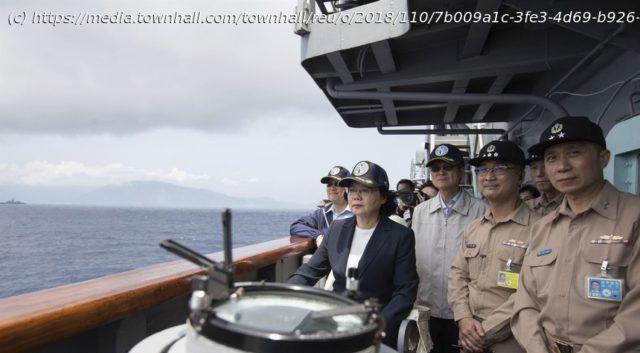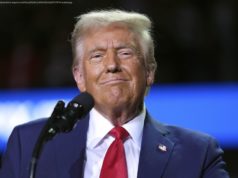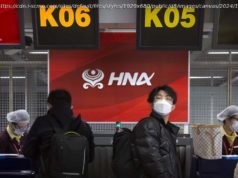Array
Taiwan’s Presidential Elections are just over a week away. To say a lot is riding on the outcome would be putting it very mildly. The leading candidate in the race is William Lai Ching-te, who is also the current Vice President. William Lai represents the Democratic Progressive Party which is center left when it comes to politics but which supports Taiwanese identity and is generally seen as the party most opposed to “reunification” with mainland China.
And that’s increasingly the only thing that matters in this race. China has been framing this election as a choice between war and peace:
Zhang Zhijun, head of China’s Association for Relations Across the Taiwan Strait, a quasi-official body that handles ties with Taiwan, said Taiwanese faced an important choice in the election.
“The two elections coming up in the Taiwan region are important choices between the prospects for peace and war, prosperity and decline,” said Zhang, who headed the central government’s Taiwan Affairs Office from 2013 to 2018.
Zhang not only said Taiwan needed to choose the “right side of history” which in this case means cozying up to China. Electing William Lai would be seen as a refusal to do that and potentially the moment China decides negotiations are insufficient to get what it wants.
Xi jinping has a lot riding on upcoming elections in Taiwan. Those polls will do more than choose the island’s leaders for the next four years. The results may clarify whether politics can still resolve the “Taiwan question”, or whether only force can compel the island to submit to Chinese Communist Party rule.
In an address on December 31st, Mr Xi called Taiwan’s unification with China “a historical inevitability”. Logically, the party chief would rather fulfil that promise without betting his regime on an all-out invasion of Taiwan, which would risk war with America. A safer option involves some mix of blandishments and strangulation, both economic and military, leading to capitulation by Taiwan’s political and business elites. Peace has long rested on America deterring Chinese aggression, and on China deterring Taiwan from declaring independence. It also rests on party bosses being able to plausibly maintain that such a negotiated settlement is possible, not least to China’s people, schooled to believe that most in Taiwan long to return to the motherland…
Victory for Mr Lai would mark the dpp’s third presidential win in a row. Chinese officials and scholars have issued warnings—notably to counterparts in America, Taiwan’s superpower protector—that they have no trust in Mr Lai, whom they call a dangerous, lifelong campaigner for Taiwanese independence.
Home
United States
USA — China Taiwan's Presidential Elections Could Have Big Implications for China and the US






